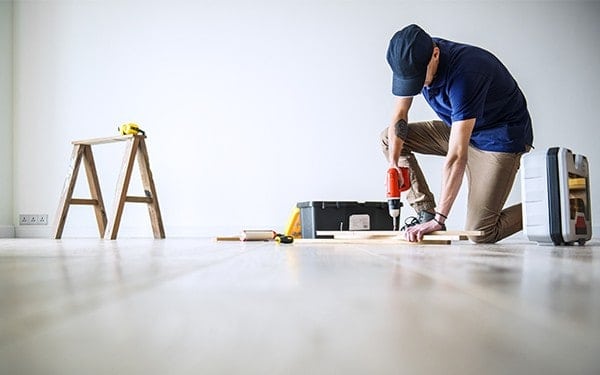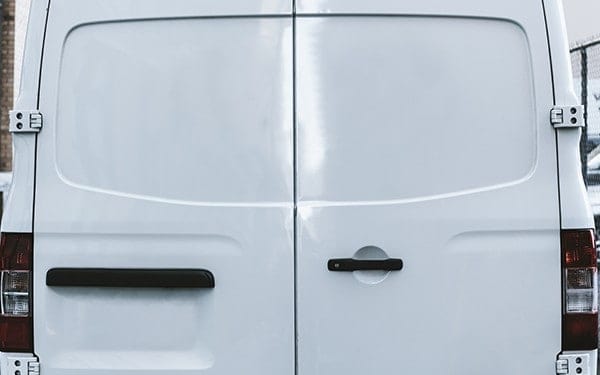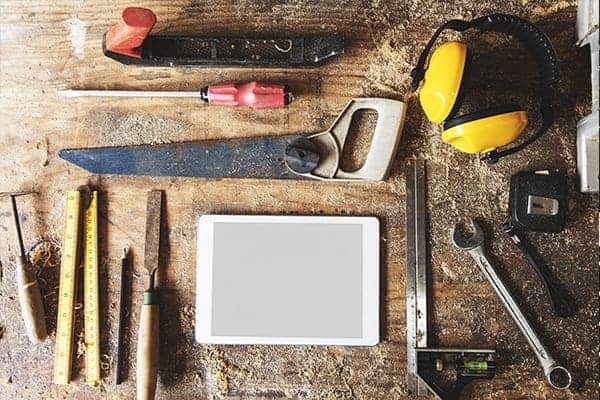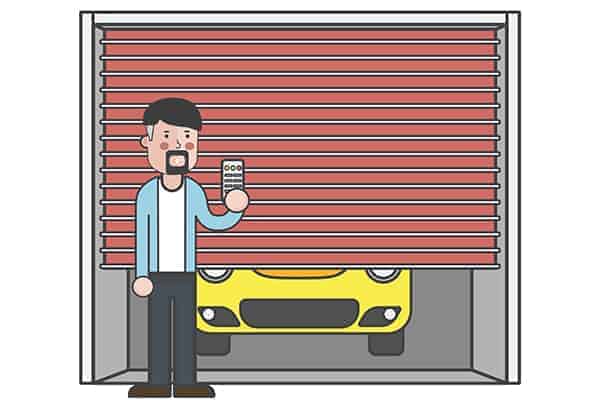
Top tips for keeping your tools safe
Posted on 11th February 2020 by Katherine Ducie
For many tradespeople, tools are essential for their job. Without your tools, you can’t work and without work, you can’t earn money.
In a recent survey from Screwfix, it was found that 46% of tradespeople surveyed had experienced having their tools stolen, with 39% of this group confirming they’d had their tools stolen at least twice. In other research conducted by The Federation of Master Builders, it was found that builders are particularly affected by tool theft, with a staggering eight in ten builders having had their tools stolen.
The research also revealed that more than one in three tool theft incidents involved theft from vans (38%) followed by theft from sites (34%). Only 7% of incidents saw tools stolen from a shed or garage at home while the smallest percentage of tool theft incidents happened inside the home (3%).
Work tools aren’t cheap, and if you want to do the best job possible for your customers, you need quality tools which can meet the demands imposed on them without breaking. Tools of this quality often cost £1000s.
While you can’t do anything to stop opportunists from striking, you can take preventive steps that’ll make stealing your tools much harder, which could save you from the anguish and hassle that is often associated with being a victim of a theft.
We highlight 10 useful tips to help keep your tools safe and protect your business.
1. Make sure your van is secure
It’s inevitable that many tradesmen and tradeswomen will keep their tools stored in their work van at some point during the day. Lunch breaks are a prime example.
That’s why van security needs to be a priority. Even if you’re careful in locking your vehicle, thieves are now using more sophisticated ways to break into vehicles including replicating the signal from your car’s key fob or by ‘door peeling’ – a method that involves folding the top of the van door open.
To keep your vehicle safe, you should consider fitting some of the following:
– An alarm
– An immobiliser
– Deadlocks for all the doors
– Slamlocks
– A lockable toolbox
– A solid bulkhead or mesh grille between the cab and the load area.
Remember that glazed rear doors on a van can be a security risk. When you are choosing a van, make sure you pick one that is designed with safety in mind and consider reading some online reviews to get an idea of which models are the safest.

2. Store your tools safely
If you do have windows in your vehicle, keep your tools out of sight. Make sure that your tools are stored in a secure toolbox or van vault so that they’re more difficult to access. Many van vaults are anti-drill and anti-cut rollers, making them even harder to break into. Not only will it keep your tools safer from the risk of being stolen, it will also lower the chance of them getting damaged during an attempted theft.
3. Don’t skimp on your tools insurance
With tool theft being so common, it pays to have your tools insured. The average tool theft claim in the UK is now estimated at £1,692 according to research by Powertools2U.
Getting insured could save you thousands of pounds, eliminate stress and help you get back to work quicker. Tools insurance can also cover you if your tools are lost or damaged.
At Tradesman Insure, we provide tools insurance from £1,000 up to £5,000. In the event of a claim being made, we will pay you the amount of loss or replace your equipment.
For more information on tools insurance, call our friendly team on 0333 321 1403.
3 important tips:
- Keep hold of all your tool receipts in case you have to make a claim.
- Keep a log of all the tools you are storing in your van.
- Note down the serial number of each item where possible.
These 3 tips will help you to easily identify what has been taken, should your vehicle ever be broken into.

4. Personalise your tools
Personalising your tools makes them easily identifiable and harder to sell on. There are several ways that you can do this, such as marking your tools with paint or permanent marker, name stamps, or simply scratching an identification mark into each tool.
This method is especially beneficial for your most valuable equipment and costs very little to apply.
5. Park for prevention
While theft can happen anywhere, parking in a busy well-lit area covered by CCTV, is a safer bet. If you are keeping your tools in your van overnight, it might be worth fitting your own CCTV system. If you are parked on your own front driveway, add motion detecting security lights to your house, and locks to your front gates if you have them.
6. Think ahead
Before going on site, have a think about which tools you’ll use and only take out the tools you need. If you carry a lot of tools, a secure site box will be handy.

7. List your tools online
Adding a list of all your tools on a national valuables and property register and marking your tools as registered is a good measure to take. This won’t prevent a theft but could help in ensuring your tools are found and returned.
8. Store your tools in a safe place overnight
While carrying your tools to and from your van each day is an extra job, it’s a job worth doing. They’ll be much safer kept securely inside your home.

9. Don’t take chances
Tools can be stolen in broad daylight, even outside your own home. Every time you leave your vehicle, no matter how short of a journey, make sure that the doors are locked, all windows are shut and that you’re making use of any other security features you have.
10. Don’t rely on stickers
A “No Tools Left in Vehicle” sticker might be enough to deter some thieves but there’s plenty who will try their luck. Don’t count on this as your only means to keeping your tools protected.
For further information or for a tradesman insurance quote, call our award-winning team on 0333 321 1403.
Click here for a quick online business insurance quote
Related articles:
Are you sure that your portable equipment is insured?



